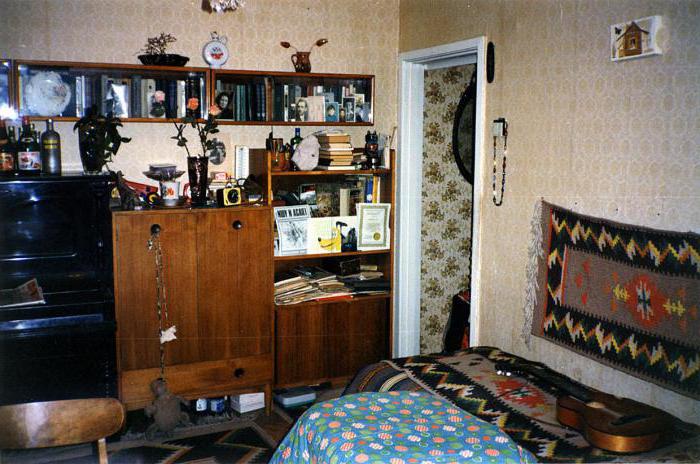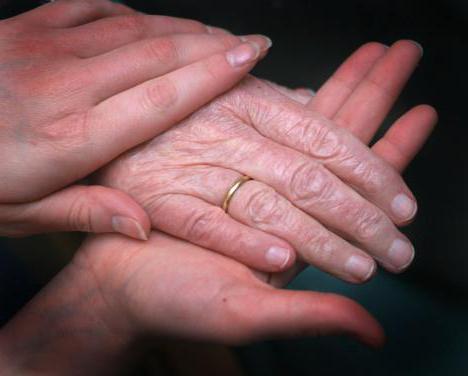What is rent for an apartment? This concept refers to the procedure for transferring a certain property from one person (recipient) to a personal nature to another (payer), who, in response, regularly makes cash payments of a specific (agreed in advance) amount for a given tangible value. Nowadays, usually we are talking about rental housing (most often apartments). In most situations, real estate is transferred by an elderly person. In return, he counts on care and maintenance until his death. However, this type of contract is quite complicated and has a large number of nuances.
What is rent for an apartment - let's talk in detail
Real estate can be purchased according to agreements of various forms. It's about buying and selling, donating or inheriting. In the same row is the option of life-long maintenance with dependent or life annuity in exchange for housing. What is its meaning? What are the advantages of a life annuity contract for an apartment to its owner? An elderly person is provided financially, receives the necessary assistance, and pays for his main property - real estate.
The traditional reason why such deals are most often made with lonely old people is the difficulty, sometimes the impossibility of their existence without care and decent material support. In our country, the standard of living of the elderly is poor. The size of the pension is often quite low, prices for utility bills are constantly growing, and age requires care and medicine.
Once in a difficult financial situation, a lonely elderly person can rely only on his own resources. Most often, this property is owned. Many, having learned what rent is for an apartment, decide to find an applicant for their property and enter into an agreement with him. In most cases, this helps to overcome material disorder. The rent paid as a result of the offer of the apartment covers most of the expenses of the elderly person and allows them to live relatively comfortably.

Clarify the concepts
What is the difference between life annuity and so-called dependent maintenance contracts? Having concluded the first of them, the elderly owner of the apartment can count on monthly receipt of the agreed amount. The second case involves the fulfillment by the other side of the obligation of full maintenance, physical care and providing the elderly helpless person with everything that he needs. What is rent for an apartment in this case? A contract concluded with an old man is to purchase food and clothing, repair and cleaning an apartment, pay for utilities, purchase medicines and pay for inpatient treatment if necessary. And also daily care (independently or with the help of a nurse) and, finally, the organization and payment of the funeral procedure.
For some people, participating in the life of an elderly person with financial assistance for him is the only opportunity in the future to solve a complex housing problem. The parties find each other through word of mouth or through relatives, sometimes thanks to social protection authorities. Both those and others want to know with whom they are dealing. An annuity contract for an apartment between relatives is far from always concluded. More often - with good friends, trusted immediate neighbors, former colleagues.
Suppose they found each other - an elderly man who "matured" to transfer real estate in exchange for care and maintenance until his death, and one who can assume all such responsibilities in exchange for an apartment. What steps will be required from the parties to properly formalize their relationship?
Step one: it's important to consider everything
Before making an annuity for an apartment, the parties formulate a list of both important and minor (down to the smallest details) conditions of a future contract. In detail, each detail must be agreed. Haste in such a case is useless. All the pros and cons of renting an apartment should be thought out in advance. Both sides require a thoughtful approach to the paperwork process. Such an agreement is absent in a standard form; its content is always individual.
An elderly person (the owner of the apartment) lists the requirements put forward in the text of the contract: what exactly will the payer of rent be required to fulfill. It is important not to miss any of the essential conditions and to formulate the expected with extreme accuracy. For example, the second party is required to pay a specified amount no later than a certain period. Monetary content must be indexed according to inflation. Any of the expected future services of the second party for the care, purchase of medicines, cooking, cleaning, etc. must be clearly reflected in the text of the contract.

Be prudent
In life, a variety of situations can occur. Suppose, at the time of preparing and signing the contract, the health of an elderly person as a whole was not satisfactory, but in the future his condition seriously worsened. But the services of a nurse and the provision of medicines with an annuity contract were not provided for.
Another case. Anyone who acts as a payer suddenly dies before he reaches the desired property. Who inherits this contract? His text says nothing about this.
It would be better if you foresee all theoretically possible situations. That is why, deciding on such a deal, you should definitely involve a lawyer in the case. Having rich experience, he will explain what future rents on the apartment the pros and cons will bring to each of the parties. The specialist will be able to provide the maximum range of measures to protect the elderly owner of the property, if the payer suddenly behaves in bad faith. On the other hand, dirty tricks are possible from the owner of the housing. Then a legally competent document will remove possible risks for the second side.
Step two: move on to collecting papers
The owner will have to collect a full package of documents that are able to confirm his ownership of this property. You will need a certificate of cadastral value and data on all persons registered in this apartment. Do not do without the originals of personal documents.
Some experienced lawyers recommend stocking up a certificate from a neuropsychiatric dispensary. Its role is to attest that the owner of the apartment was in his right mind at the time of the conclusion of the contract. This step is not mandatory from the point of view of the law, but sometimes it can save the future payer from some problems. The fact is that if the owner is old and with serious diseases, the heirs can try to challenge the deal, referring to his insanity.

Step Three: Go to the Notary
Having collected everything you need, you should visit a notary, who will assess the legal capacity of the owner of the apartment and the degree of awareness of the decision. If he has no doubts, the specialist is obliged to draw up and certify a life annuity contract for the apartment. Such notarization is mandatory.
After being certified by a notary, the contract is transferred to the registration authority, the state duty is paid by the parties, and when the transaction is registered, a certificate of ownership with encumbrance is issued.
The terms of the contract, the new owner will have to fulfill until the death of the former. Only after that he has the right to submit an application for removal from the apartment of the encumbrance (on the basis of a death certificate). And only after that with any restrictions on the use of housing will be over.
Under what conditions can the contract be terminated?
Both annuity and maintenance over the course of a lifetime, executed in the form of officially concluded agreements, can be canceled solely by mutual agreement of both parties or in a judicial proceeding. A transaction may be declared null and void on only two grounds. These include the lack of fulfillment of the indicated conditions or the recognition of the owner of the apartment as legally incompetent at the time of signing the document.
If its points are respected and an elderly person made a deal, being officially legally responsible, then recognition of such an agreement as invalid from a legal point of view is practically impossible. In the event that the person receiving the rent has seriously substantiated claims regarding the fulfillment of the prescribed conditions that can be proved in the courtroom, such a transaction may be terminated.
Practice shows that there are many such situations. Lawyers sometimes attribute this to fraud on the part of elderly former owners, but for the most part - the cessation of actual support and care from the new owner.

Lifetime rental per apartment: possible problems
People are used to treating such agreements with caution, and not in vain. After all, the real estate market is full of scammers. That is why only well-known people most often become parties to such transactions. But lawyers are reassuring - the conditions and guarantees of protection can be spelled out in the contract itself and supported by its notarization.
At its core, this deal implies a lack of opportunity for the new owner to sell or take away his home from the old man, to move in there (unless specifically agreed). He cannot refuse the obligation to maintain the ward.
Nevertheless, risks are possible for both parties. One of them is the wrong choice by an elderly person of a contract partner. Here, trust and a legally correctly drafted document are not enough. An elderly person may be sympathetic to the other side, turning a blind eye to some manifestations of forgetfulness and optionality, but in the end get a regular violation of the terms of the transaction.
The opposite situation is when the character of the partner did not suit the old man's taste, and he painstakingly seeks out the smallest flaws in the performance of his agreed duties. Over time, both learn about the life-long rental of an apartment, which is not such a simple matter. Unfortunately, the “nothing personal” formula does not work in this case. Each of the parties will have to think hard and decide whether you will be able for many years to maintain relationships with your chosen partner.
Other risks
The risk lies in the possible incorrect assessment of one’s own financial and physical capabilities by an older person’s partner. It is possible that this (lifetime rent of an apartment) is an overwhelming burden for the payer. After all, the costs of maintaining and maintaining an elderly sick person will increase from year to year.

Another risk - the payer of rent may not wait for the apartment. Sometimes old people experience their partners one after another. In this case, the contract should stipulate who the apartment is rented after the death of the payer - with the transfer of all previous rights and obligations.
One of the possible risks for an elderly person - new owners may require his relocation.If the refusal of possible relocations is fixed by the contract, this action refers to the violation of its conditions, which gives the elderly person the right to go to court. The main thing is that the rent of an apartment with a life stay must be registered.
What does the payer usually risk? An elderly person, a couple of years after signing the contract, may suddenly want to terminate it unilaterally. Lawyers indicate that if the payer carefully fulfills all the prescribed conditions, this is not possible. That is, the recipient of the rent in this case does not have the right to change his mind and terminate the transaction, guided only by his own desire.
Who will outwit whom?
Lawyers note that cases of fraud occur both on the part of payers and grandparents, who, under any plausible excuse, can provoke a partner to withdraw from the formal fulfillment of the terms of the contract, on the basis of which they then try to terminate the transaction. They may refuse money or obstruct the payment of housing and communal services. Then the court declares that for a couple of months they have not seen the monetary content. If the court considers their claims justified, then the right of ownership can be returned to the old man, but no one compensates the previously paid funds to the caregiver.
To prevent such sad circumstances, lawyers usually advise payers to immediately start a special journal in which to enter all receipts and checks confirming the spent and transferred amounts. If the old man receives cash in hand, it is imperative that he sign for it every time. This document can play a very important role in a possible trial.
And yet, the most common situation is when the payer of rent gradually ceases to fulfill his duties. Here, the advice to the old man looks unequivocal - to go to court and terminate the annuity contract for an apartment with a lifelong maintenance.

Heirs do not sleep
Problems can be from relatives. After the death of an elderly rent recipient, the latter very often try to achieve the termination of the transaction, citing the allegedly incapacity of the latter. It is for such a case that the above-mentioned certificate from a neuropsychiatric dispensary comes in handy. If it is absent, it is theoretically possible to conduct a comprehensive examination of a psychological and psychiatric nature, carried out posthumously, based on documents and testimony. But this process is very complicated, expensive and sometimes does not bring any results.
Provided that the text of the contract is correctly drafted, all risks are eliminated, with the exception of the possible non-fulfillment of certain clauses of the "contract". Problems arise when, for example, the obligatory indexation of money in connection with inflation is not mentioned or an important point about hiring a nurse for illness is missing. If the document does not stipulate a specific method and deadline for the payment of sums of money, the old man can receive them unsystematically, from case to case. As a result, there is practically no talk of improving his financial situation, and housing is no longer in ownership. Therefore, we repeat once again - the services of a lawyer will be required by both parties before the conclusion of the transaction, and not upon the occurrence of problems.
Additional details
Now let us touch on in more detail the features of such agreements and some important legal issues. What paragraphs of the document are considered mandatory? There are only two of them: an indication of the alienated property with details of the particular apartment and the definition of the recipient's obligations. We have already considered the need for a detailed decoding of the second paragraph.
The recipient can be either a citizen (individual) or a non-profit organization. The payer may also be a person, both physical and legal.There is no clear definition of the parties to the transaction in the legislation. The mandatory written form of concluding an annuity contract is governed by Article 584 of the Civil Code of the Russian Federation, as well as its notarial certification. If this condition is not fulfilled, any court shall invalidate such a transaction.
If the participants are individuals, their passport data must be indicated in the documents. If it is a commercial or other organization, you will need to provide the information contained in the constituent documents with the registration addresses. All data with a detailed description of the alienated housing should also be listed in detail. A special point is not only obligations, but also the responsibility of each of the parties in case of late payments. The contract of life annuity for the apartment must be sealed by the signatures of all participants.

What documents are needed
The list of those papers that are required may be different. Consider the main of them, without which you can not do. As such, it should be called the explication of the property to be alienated with a floor plan. You can order it at BTI by submitting an appropriate application and paying for this service. A number of certificates from the MFC will be required: personal account, extract from the house book. In addition to personal identification documents of the parties, you will also need a cadastral passport for the mentioned housing and a certificate of the size of its estimated value.
If one of the parties acts through a representative, in addition to his own passport, he is obliged to present a power of attorney for the right to conduct a transaction. We have already mentioned the title documents for the alienated property, as well as the grounds for the initial occurrence of such rights (for example, a deed of gift, a will or a contract of sale). As already mentioned, a certificate of legal capacity from a medical institution will not hurt. Another mandatory document is a certificate regarding the absence of encumbrances or financial debts of the object from the Unified State Register of Enterprises and a receipt for the payment of state duty for the certification procedure. Three copies of the annuity contract itself are attached to the package.
How much can a similar contract cost?
Regardless of whether the apartment is being rented to a relative or an outsider, participants will have to pay a certain amount of money for the transfer of the alienated property. As indicated in chapter 30 of the Civil Code of the Russian Federation, a citizen (individual) contributes it in the amount of 2000 rubles. For a legal entity, it is much higher - 22,000 rubles. Making such a contract with a notary requires the payment of a fee, the amount of which depends on the value of the alienated property in the amount of 0.5%. The upper and lower limits of this amount are limited, respectively, to the figures of 20,000 rubles. and 300 rubles, which is indicated in the corresponding article of the Civil Code.